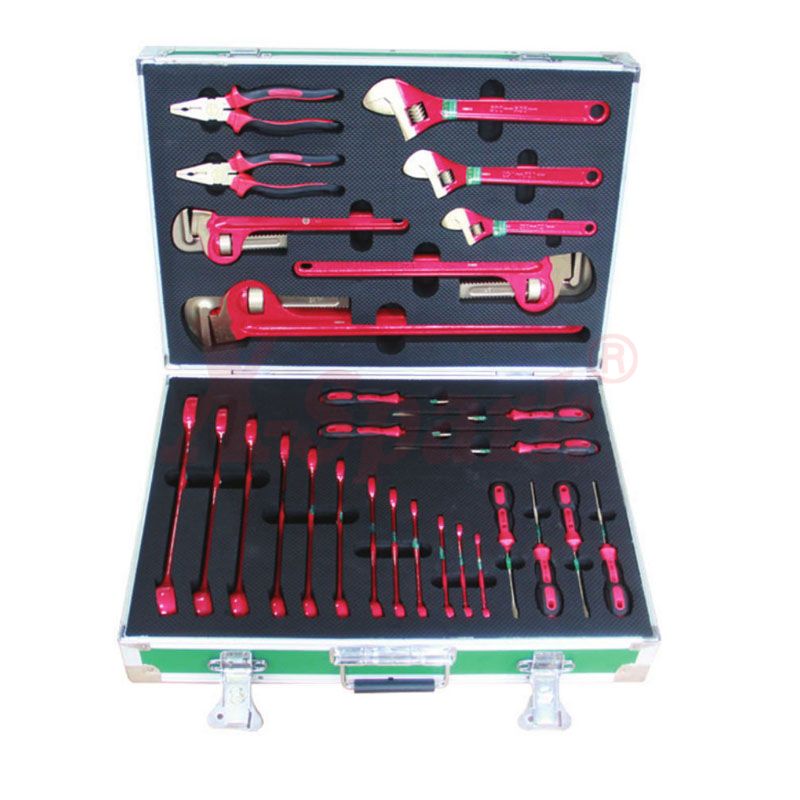Non-sparking tools are made of beryllium bronze and aluminum bronze. The beryllium bronze alloy and aluminum bronze alloy do not generate sparks when they are hit or rubbed. And safety tools used in corrosive occasions. The BEA-20C alloy withstands the impact energy of 561IJ in 30% oxygen or 6.5-10% methane-air oxygen. After 20 shocks, no sparks or combustion occurred.
Oil refining and petrochemical industry, coal mine, fire protection, oil field, natural gas chemical industry, gunpowder industry, chemical fiber industry, paint industry, fertilizer industry, various pharmaceutical industries. Petroleum wheels and liquefied petroleum gas vehicles, airplanes, warehouses that handle flammable and explosive products, electrolysis workshops, communication machine assembly workshops, places requiring tools that are not rusty, wear-resistant and anti-magnetic.
The aluminum-copper alloy explosion-proof tool is made of precious rare metal by synthesis, smelting, and forging, and the surface is yellow. The working surface hardness is above HRC25 °, the tensile strength δ b> 75-85kgf / mm, and all other technical indicators have reached the advanced level of similar foreign products. Continuous use in the flammable gas ethylene (concentration 7.8%) space ensures safety, and impact (collision), friction, and drop hammers do not produce spark explosions.

Non-Sparking Tools
The explosion-proof tools produced, sold and distributed in China can be divided into two categories according to their materials:
1. Aluminum bronze hand tools, the specific material is high-purity electrolytic copper as a matrix, adding an appropriate amount of aluminum, nickel, manganese, iron and other metals to form a copper-based alloy.
2. Beryllium copper alloy (commonly known as beryllium bronze) explosion-proof tools, the specific material is high-purity electrolytic copper as a matrix, adding an appropriate amount of beryllium, nickel and other metals to form a copper-based alloy. Both materials have very good thermal and electrical conductivity. After heat treatment, the hardness and wear resistance of aluminum bronze are almost the same as beryllium bronze and can reach HRC30o or more. Beryllium bronze is not magnetic and can be used in a strong magnetic field environment.
The explosion-proof tools can also be divided into two categories according to the manufacturing process:
1. Casting process: It is a traditional manufacturing process, which is the international general manufacturing technology for explosion-proof tools in the 1980s. Most domestic explosion-proof tool manufacturers have been used to this day. Casting process advantages: simple process and low manufacturing cost. Disadvantages: product density, hardness, tensile strength, torque is low, more pores and trachoma result in shorter product life.
2. Forging process: the latest international manufacturing process is made by large-scale presses or punches, combined with high heat-resistant forming molds for one-time forging. Forging process advantages: it can greatly improve the density, hardness, tensile strength and torque of the product, basically eliminate stomata and trachoma, and make the product's mechanical performance service life about 1 times longer than the traditional casting process. Disadvantages: large investment in production equipment and molds, resulting in higher costs.